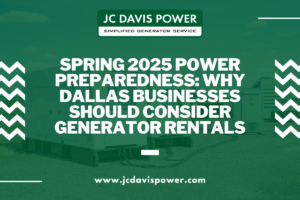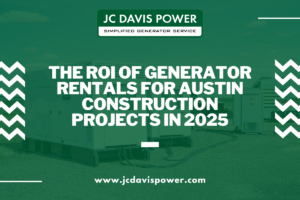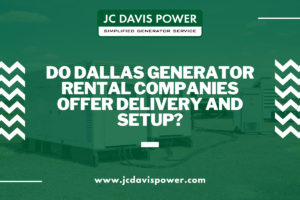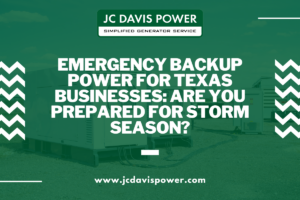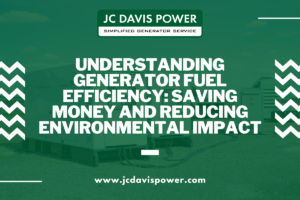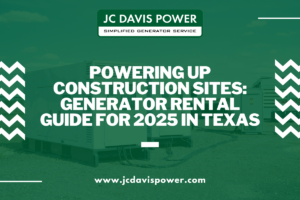Key Takeaways
- Hybrid power systems offer significant fuel efficiency improvements and emission reductions.
- Battery Energy Storage (BES) units provide consistent power supply and can cut fuel usage by up to 50%.
- Sustainable energy solutions like Batt Pack Energy units are transforming on-site power management.
- Off-grid power solutions are pushing the boundaries of fuel-free operation in construction.
- The transition to new power solutions presents both challenges and opportunities for the construction industry.
Introduction: The Power Shift in Construction
In the construction world, one of the most significant transformations is happening right under our noses – or rather, under the hoods of our equipment. The construction industry, long reliant on traditional diesel generators, is witnessing a revolution in mobile power solutions. This shift isn’t just a trend; it’s a necessary evolution driven by environmental concerns, efficiency needs, and regulatory pressures.
As project managers, site supervisors, and construction company owners, you’re at the forefront of this change. The decisions you make about power solutions can significantly impact your project’s efficiency, costs, and environmental footprint. In this article, we’ll guide you through the new landscape of mobile power in construction, from hybrid systems to fuel-free alternatives, helping you make informed choices for your next project.
The Evolution of Mobile Power Solutions
Traditional Generators: The Old Guard
For decades, diesel generators have been the backbone of construction site power. They’re reliable, powerful, and can run for extended periods. However, they come with significant drawbacks:
- High fuel consumption
- Noisy operation
- Substantial carbon emissions
- Regular maintenance requirements
These factors have pushed the industry to seek alternatives, leading to the rise of hybrid and fuel-free solutions.
The Rise of Hybrid Systems
Hybrid power systems combine the reliability of diesel generators with the efficiency of battery storage. They offer:
- Reduced fuel consumption
- Lower emissions
- Quieter operation during battery-only periods
- Extended runtime without refueling
The Promise of Fuel-Free Alternatives
The ultimate goal for many in the industry is to move towards fuel-free power solutions. These systems rely entirely on renewable energy sources and advanced battery technology, offering:
- Zero on-site emissions
- Silent operation
- Minimal maintenance requirements
- Independence from fuel price fluctuations
Hybrid Power Systems: Bridging the Gap
Danfoss Editron: Revolutionizing Off-Highway Power
Danfoss Editron is at the forefront of hybrid and electric powertrain systems for the construction industry. Their solutions offer:
- Lower fuel and energy consumption
- Reduced carbon dioxide and particulate emissions
- Lightweight and compact hardware
- Easy integration into various machines
By adopting Danfoss Editron’s technology, construction companies can significantly reduce their environmental impact while improving operational efficiency.
Volvo CE Hybrid Excavators: Efficiency in Action
Volvo Construction Equipment has made significant strides in hybrid technology with their new generation EC400 and EC500 excavators. These machines offer:
- 17% increase in fuel efficiency
- 15% reduction in CO2 emissions
- Innovative hydraulic hybrid technology
The excavators use a unique system that charges accumulators during boom-down motion, providing energy for assist motors. This ingenious use of otherwise wasted energy exemplifies the potential of hybrid systems in construction equipment.
Battery Energy Storage Units: The Game Changer
Power Electrics BES Units: Consistent and Clean Energy
Battery Energy Storage (BES) units are revolutionizing how construction sites manage power. Power Electrics offers BES units that provide:
- Consistent power supply
- Reduced environmental impact
- Optimized load management
- Effective peak shaving
These units are particularly useful for construction sites with fluctuating power demands, ensuring that energy is available when needed without the constant running of generators.
Case Study: Fuel Reduction and Emission Cuts
A real-world example demonstrates the potential of BES units:
- A 100kVA generator paired with a 45kVA/90kWh BES unit
- Estimated 50% reduction in fuel usage
- Significant cuts in CO2 and NOx emissions
This case study highlights how integrating BES units can dramatically reduce both fuel consumption and emissions, leading to more sustainable and cost-effective construction practices.
Sustainable Energy Solutions for Construction Sites
Hybrid Power Solutions Inc.: Versatile Power Packs
Hybrid Power Solutions Inc. is making waves with its Batt Pack Energy (BPE) and Batt Pack Pro (BPP) units. These versatile power solutions are being used for:
- Powering bridge deck pouring operations
- Energizing contractor fleet servicing vehicles
- Providing reliable power to site trailers
The adaptability of these units has impressed construction professionals, leading to repeat orders and new customer acquisitions.
Real-World Applications: From Bridge Building to Site Management
The versatility of hybrid power solutions is evident in their wide range of applications:
- Bridge construction: Powering equipment for deck pouring without the need for long power lines or multiple generators.
- Fleet management: Providing mobile power for servicing and maintaining construction vehicles on-site.
- Site facilities: Ensuring consistent power for trailers and temporary offices, improving working conditions and productivity.
These applications demonstrate how hybrid power solutions can adapt to various construction needs, offering flexibility and efficiency across different project types.
Off-Grid Power: Pushing the Boundaries of Fuel-Free Operation
EcoFlow Power Kits: Integrated Power Solutions
While primarily designed for vans and motorhomes, EcoFlow Power Kits showcase the potential of integrated, off-grid power solutions that could be adapted for construction use. These kits feature:
- Solar power integration
- Vehicle alternator charging
- Shore power connectivity
- Smart generator compatibility
The ability to fully charge a 5kWh battery in under an hour using combined charging methods hints at the future possibilities for construction site power management.
The Future of Self-Sustaining Construction Sites
Imagine a construction site that generates and stores its own power, independent of the grid or fuel deliveries. While we’re not quite there yet, the technology is rapidly advancing. Future construction sites could feature:
- Large-scale solar arrays
- Advanced battery storage systems
- Intelligent power management software
- Hydrogen fuel cells for backup power
These technologies, when combined, could create self-sustaining power ecosystems on construction sites, dramatically reducing costs and environmental impact.
Navigating the Transition: Challenges and Opportunities
Initial Investment vs. Long-Term Savings
Transitioning to hybrid or fuel-free power solutions often requires a significant upfront investment. However, the long-term benefits can be substantial:
- Reduced fuel costs
- Lower maintenance expenses
- Improved operational efficiency
- Enhanced reputation for sustainability
Construction companies need to carefully analyze the return on investment, considering factors such as project duration, power requirements, and local fuel prices.
Training and Adaptation: Preparing Your Workforce
Introducing new power technologies requires an investment in your workforce. Consider:
- Training programs for operators and maintenance staff
- Updating safety protocols for new equipment
- Educating project managers on the optimal use of hybrid and fuel-free systems
By preparing your team, you can ensure a smooth transition and maximize the benefits of these new technologies.
The Environmental Impact: Beyond Fuel Savings
Reducing Carbon Footprint in Construction
The construction industry is a significant contributor to global carbon emissions. Adopting hybrid and fuel-free power solutions can have a substantial impact:
- Direct reduction in CO2 emissions from fuel consumption
- Decreased particulate matter and NOx emissions
- Reduced noise pollution in urban construction sites
These environmental benefits not only contribute to global sustainability goals but can also improve relations with local communities affected by construction projects.
Meeting Sustainability Goals and Regulations
As environmental regulations become stricter, construction companies that have already transitioned to cleaner power solutions will be ahead of the curve. Consider:
- Compliance with emissions standards: Many urban areas are implementing strict emissions regulations for construction equipment.
- Green building certifications: Projects using sustainable power solutions may qualify for certifications like LEED, enhancing their market value.
- Corporate sustainability goals: Many companies are setting ambitious carbon reduction targets, and construction power solutions play a crucial role in meeting these objectives.
Conclusion: Embracing the New Power Paradigm in Construction
The shift from traditional diesel generators to hybrid and fuel-free power solutions represents more than just a technological upgrade – it’s a fundamental change in how we approach construction projects. By embracing these new technologies, construction professionals can:
- Improve project efficiency
- Reduce operational costs
- Minimize environmental impact
- Enhance their competitive edge in an evolving industry
As we navigate this new landscape of mobile power in construction, the path forward is clear: hybrid and fuel-free solutions are the future. Whether you’re managing a small renovation or overseeing a massive infrastructure project, the time to consider these innovative power solutions is now.
The construction industry has always been about building for the future. By adopting these advanced power technologies, we’re not just building structures – we’re building a more sustainable, efficient, and responsible construction industry for generations to come.
Are you ready to power your next project with the future of construction energy? The transition starts with your next decision. Choose wisely, and lead the charge towards a cleaner, more efficient construction industry.
Take the Next Step: Secure Reliable Mobile Power for Your Project
While the future of construction power is moving towards hybrid and fuel-free solutions, many projects still require traditional generators or are in the process of transitioning. JC Davis Power has you covered if you’re in Texas or the surrounding states and need a reliable mobile power solution for your construction site or temporary workspace.
Here’s how JC Davis Power can help you stay on budget and ahead of schedule:
- Controlled Project Power Costs: Their on-time power and lighting services help businesses get worksites up and running quickly, reducing inefficiency and cost overruns.
- Stress-Free Process: JC Davis Power manages the entire mobile power generation process, including delivery, installation, fuel management, and maintenance.
- Project Efficiency: With their reliable managed mobile power solutions, you can focus on your project goals without worrying about power issues.
- Diverse Solutions: Whether you need mobile office power generators or lighting towers, they have options to suit various industries and situations.
- Comprehensive Service: From delivery and installation to remote monitoring and regular maintenance, JC Davis Power ensures you always have power when you need it.
Ready to secure quick mobile power delivery and installation for your project?
Contact JC Davis Power‘s specialists today to book your generator or lighting tower delivery. Take the hassle out of power management and keep your project moving forward efficiently.
By choosing a reputable power solution provider, you can ensure reliable energy for your current projects while planning for the transition to more sustainable options. Don’t let power concerns slow down your progress – take action today to secure the energy your project needs to succeed.
